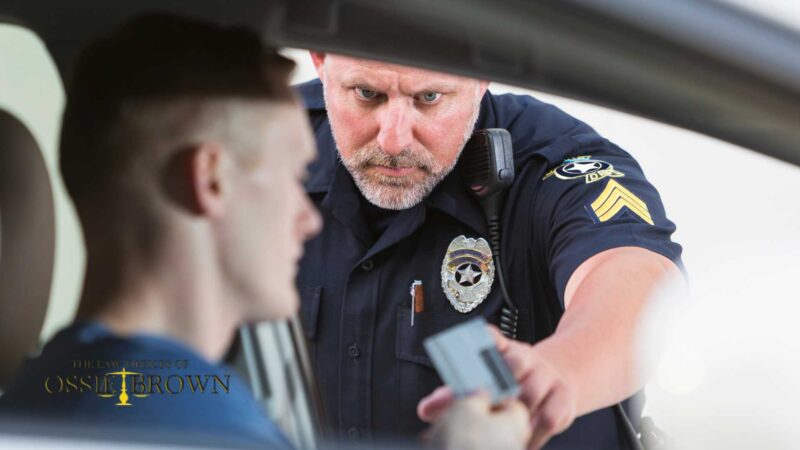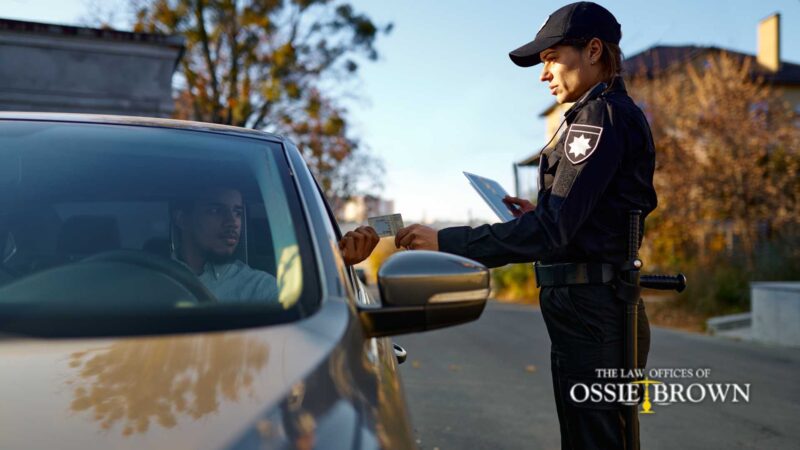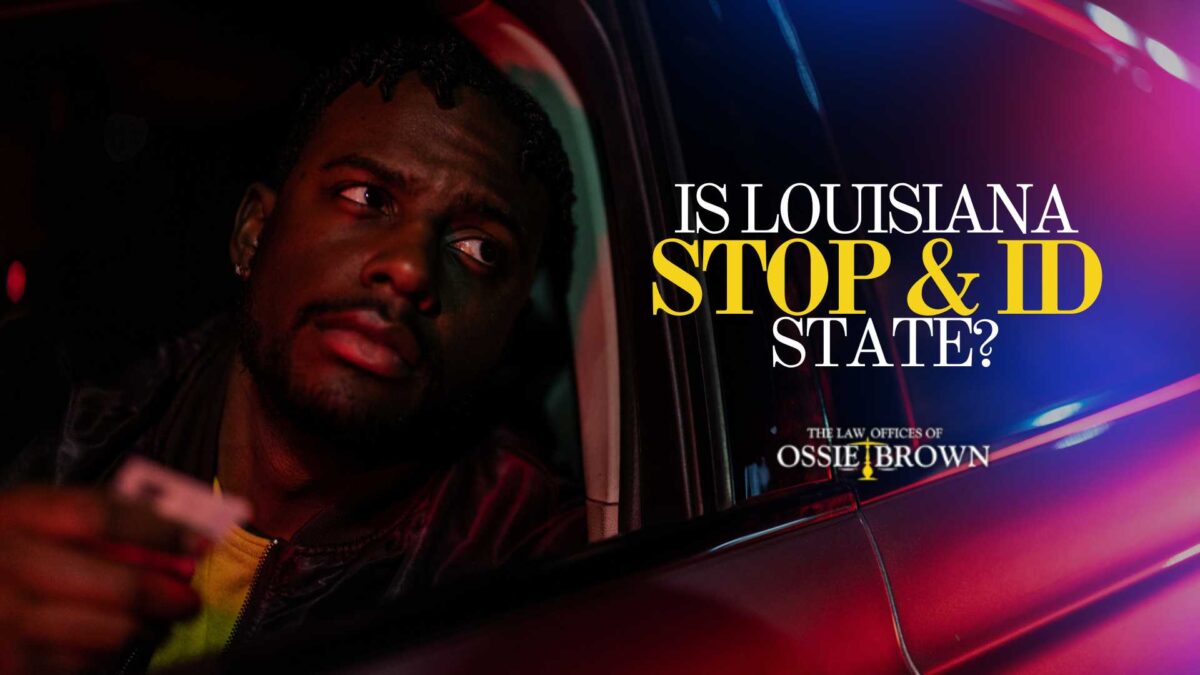Is Louisiana a stop and ID state? Louisiana is not one of the stop-and-ID states with a stop-and-ID law requiring individuals to carry identification, such as a driver’s license, and provide identification upon request without a search warrant. While Louisiana does not have a stop-and-identify law, police officers and law enforcement officers may demand identification during a traffic stop or when there is reasonable suspicion of criminal activity. In these specific circumstances, you may need to provide identification, such as a driver’s license. Refusing to answer questions or provide identification to a police officer can lead to being arrested. However, since you have the right to remain silent and ask to see a search warrant, police officers cannot force you to provide identifying information if you are not involved in a traffic stop or suspected of criminal activity. Understanding these nuances in Louisiana law can help you know what’s legally required when interacting with law enforcement.
For a deeper understanding of your rights and personalized legal advice, don’t hesitate to contact a Baton Rouge criminal defense lawyer at the Law Offices of Ossie Brown. Call 225-343-1111 to schedule your free consultation with us today.
Stop and ID States: What States are Stop and ID?
A “stop and ID” law requires a person to provide identification during a traffic stop if the police officer has reasonable suspicion that the person is engaging in illegal activity and, therefore, asks the person for identifying information.
The stop and identify law is designed to help law enforcement officers prevent crime and ensure public safety but has sparked discussions about civil liberties and privacy and whether they fall under the appropriate scope of police authority. Currently, 27 other states are considered stop and identify states – which authorize police to demand identification under reasonable belief of a crime– with each stop and ID state having its own specific requirements and conditions under which law enforcement can legally demand identification from such person.
Stop and ID states with a stop and identify law include:
- Alabama,
- Arizona,
- Arkansas,
- Colorado,
- Delaware,
- Florida,
- Georgia,
- Illinois,
- Indiana,
- Kansas,
- Louisiana,
- Maryland,
- Missouri (specifically in Kansas City),
- Montana,
- Nebraska,
- Nevada,
- New Hampshire,
- New Mexico,
- New York,
- North Carolina (applicable only during motor vehicle traffic stops),
- North Dakota,
- Ohio,
- Rhode Island,
- Utah,
- Vermont,
- Washington,
- And Wisconsin.
Arizona, Oregon, South Dakota, and Texas have their own stop and identify law regarding the specific circumstances in which a person should provide identification and vehicle registration information during a traffic stop.
It’s essential for residents and visitors in stop and ID states to be aware of their specific stop and identify law and understand their rights during a traffic stop police encounter, whether that be during a traffic stop or other encounter.
Is Louisiana a Stop and Identify State?
Yes, Louisiana is classified as a “Stop and ID” state according to CCRP 215.1, which grants law enforcement officers the authority to request identification from individuals if there is reasonable suspicion of criminal activity. So, during a traffic stop, this may look like providing your name, driver’s license (or Louisiana hardship license), vehicle registration, and address.
The stop and identify law in Louisiana mandates that during an encounter with police, if law enforcement officers reasonably suspect that someone is involved in a crime, the police officer can legally demand identification from that person. In Louisiana, the person is legally required to provide identification under these specific circumstances, and refusing can lead to arrest.
It’s crucial for residents and visitors in Louisiana to understand this aspect of stop and ID laws and law enforcement protocols, as it directly impacts interactions with law enforcement officers and one’s approach to handling traffic stop situations to avoid being arrested.

Louisiana Stop and ID Laws: When Can a Police Officer Stop You?
Police officers are authorized to stop individuals only when they have reasonable suspicion that a crime is being committed. Reasonable suspicion must be based on specific and articulable facts rather than mere hunches. Common examples include behaviors indicative of drunk driving or visible signs of drug use or possession. These specific circumstances provide police with a basis to initiate a stop for further investigation.
If you have been stopped by a police officer for these reasons, contact a Baton Rouge DUI attorney or Baton Rouge drug crime attorney at our law firm.
What is Reasonable Suspicion?
Reasonable suspicion is a legal standard that enables law enforcement officers to initiate a stop or conduct a brief investigation if police suspect someone is engaged in criminal activity. This standard is based on specific, observable facts and logical inferences rather than mere hunches or ungrounded suspicions.
What To Do When a Law Enforcement Officer Stops You
Many people don’t know what happens when you get pulled over for a DUI or stopped by police during Louisiana DUI checkpoints or for any other reason to avoid entrapment in Louisiana.
Stay Calm
Maintain composure during a police officer interaction to help de-escalate the situation and prevent misunderstandings.
Remember Your Rights
There may be certain rights police don’t want you to know in Louisiana. You have the right to remain silent, which means you are not obligated to answer questions about your destination, where you’re coming from, or what you’re doing. You can refuse consent to a search unless there’s a warrant or probable cause. If not under arrest, you can ask if you can leave.
Be Mindful of What You Say and Don’t Say
Anything you say can be used against you. Provide only required information and exercise your right to remain silent if unsure.
Avoid Arguing With the Officer
Arguing or becoming confrontational can escalate the situation and may lead to additional charges. It’s important to stay polite and composed.
Keep Your Hands Visible and To Yourself
Keep your hands visible to reassure the officer you are not a threat.
Don’t Attempt to Escape
Attempting to flee can lead to serious legal consequences and additional charges.
Don’t Resist or Obstruct the Officer’s Duties
Resisting an officer in Louisiana can worsen the situation and lead to additional charges. This includes actions such as pulling away, refusing to follow lawful orders, or attempting to interfere with the officer’s investigation.
Take Note of the Officer’s Badge and Patrol Car Number
If you find yourself in a situation where you believe your rights have been violated by a law enforcement officer, or if your encounter leads to legal proceedings, document the officer’s badge number and patrol car number for any future legal proceedings.
Ask for a Criminal Defense Attorney
If detained or facing charges, ask for a criminal defense lawyer to ensure your rights are protected before making any statements.

Do You Have to Consent to a Search in Louisiana?
Under the Fourth Amendment, you are protected against unreasonable search and seizure, which means you do not have to consent to a search of your person, vehicle, or home without a valid search warrant. A police or peace officer must present a warrant signed by a judge to conduct a lawful search in most circumstances.
There are situations where officers may claim to have a warrant when they do not; therefore, it’s within your rights to ask to see the warrant before consenting to any search. This step is crucial in ensuring that any search conducted is legally justified.
When Can Police Officers Arrest You?
Police are authorized to arrest individuals when they have an arrest warrant or when police suspect, with probable cause, that they’ve committed a crime. The standard for probable cause is higher than mere suspicion but does not require evidence beyond a reasonable doubt in Louisiana, which is necessary for a conviction. For example, if you fail the test for horizontal gaze nystagmus in Louisiana, you could be arrested.
Arrest vs. Detainment
Understanding the distinction between being detained and arrested is crucial for individuals during police encounters. An arrest occurs when the arresting officer takes someone into police custody with the intention of charging them.
In contrast, detainment is a brief and limited restraint of an individual’s freedom of movement for investigative purposes. During a detainment, officers may question the individual and conduct a pat-down search for a dangerous weapon if they have reasonable suspicion of criminal activity.
In Louisiana, detainment is often used when law enforcement offers suspect theft. If you’ve been detained or arrested in Louisiana for theft, contact an experienced Baton Rouge theft crime attorney.
Your Basic Rights While Under Arrest
When you are being arrested, you are entitled to certain rights known as Miranda rights or Miranda warnings. These include:
- You have the right to remain silent.
- Anything you say can be used against you in court.
- You have the right to an attorney before answering any questions.
- If you can’t afford a lawyer, the state will provide you with one before you answer any questions.
- If you want to refuse to answer any questions without a lawyer present, you have the right to refuse at any time.
Baton Rouge Criminal Defense Attorneys
If you’re facing a legal challenge, whether it’s a police stop, detainment, or arrest, seeking guidance from experienced Baton Rouge criminal defense attorneys is of the utmost importance. With a deep understanding of Louisiana laws and a proven track record of success, our criminal defense lawyers are prepared to vigorously defend your rights. Contact us at 225-343-1111 to schedule a consultation.

